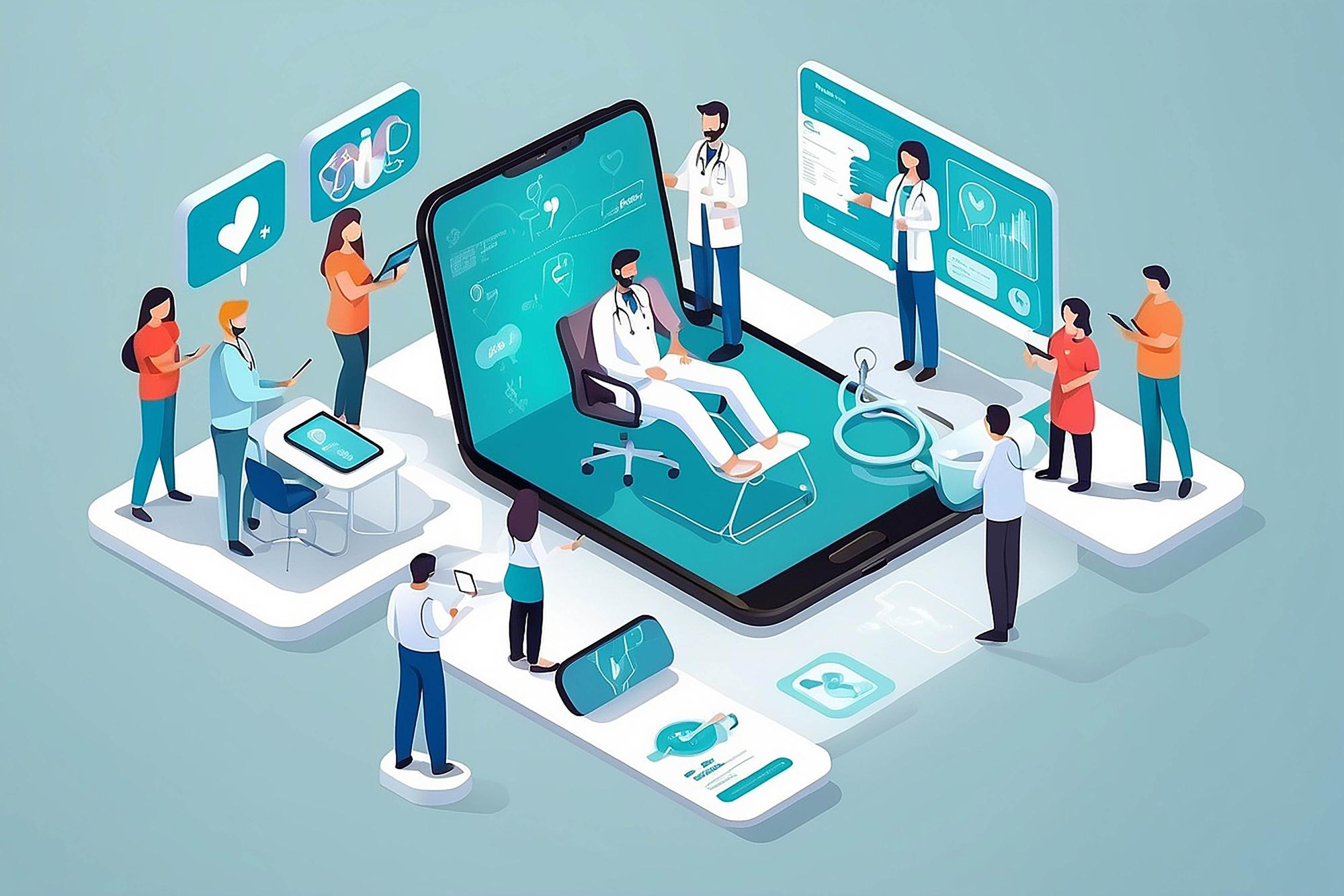CDSS – Revolutionising Diagnosis with AI-Powered Clinical Decision Support System

ABDM – Ayushman Bharat Digital Mission
05 Apr 2024
In the realm of healthcare, access to quality services is not just a matter of privilege; it’s a fundamental right. Recognizing this, the Indian government launched the Ayushman Bharat Digital Mission. Commonly known as ABDM, this is a revolutionary initiative aimed at democratising healthcare through digital empowerment with the vision to provide accessible, affordable, and high-quality healthcare to every citizen. At its core, the mission seeks to address the challenges of accessibility, affordability, and efficiency in healthcare delivery by harnessing the power of data and technology.
Features
ABHA ID:
One of the key pillars of the mission is the creation of the Ayushman Bharat Health Account or Health ID Card Approved by ndhm.gov.in. This ID serves as a single point of access to an individual’s health records, enabling healthcare providers (HCPs) to deliver personalised and efficient care. Through the creation of unique health IDs for every individual, the mission ensures seamless access to health records and services across the nation. This digital infrastructure empowers individuals with control over their health data, enabling informed decision-making and personalised care.
Universal Health Coverage (UHC):
The Ayushman Bharat Digital Mission (ABDM) aims to create a seamless online platform offering a wide range of data and infrastructure services. Prioritising data security and privacy, it aims to simplify healthcare access, particularly for underprivileged communities. The Ayushman Bharat – Pradhan Mantri Jan Arogya Yojana (AB-PMJAY) extends financial protection to over 50 crore individuals for timely and affordable healthcare.
Digital Health Ecosystem:
The mission aims to establish a digital health ecosystem connecting providers, facilities, and patients. Individuals can access various healthcare services from home through the National Digital Health Mission (NDHM). This enhances convenience and accessibility while reducing strain on traditional healthcare infrastructure.
Data Security and Privacy:
The ABDM emphasises robust data protection measures to build trust among users. It ensures strict encryption, consent-driven data sharing, and adherence to global best practices, fostering widespread adoption of digital health technologies.
Health Professional Registry (HPR):
The HPR serves as a comprehensive database of healthcare professionals, enabling access to enhanced services and facilitating communication across the healthcare ecosystem. It aims to transition into a citizen-centric platform, enhancing the visibility and credibility of verified professionals.
Health Facility Registry (HFR):
The HFR is an extensive repository of health facilities nationwide, streamlining access and administrative processes. It ensures confidentiality and facilitates easier registration, renewal, and empanelment with insurance agencies.
Drug Registry:
The ABDM is establishing a centralised drug registry to compile information on approved medications, enhancing authentication and streamlining inventory flow. It aims to improve patient healthcare experiences through quality enhancement and patient-centric digitization.
Unified Health Interface (UHI):
UHI creates an ecosystem for seamless communication and data exchange among stakeholders, similar to UPI in payments. Patients can access services from various providers through any preferred application, improving accessibility and interoperability in digital health services.
NOTTO:
Under the ABDM, the NHA is developing a digital platform for NOTTO to establish authenticated digital registries for organ donors and recipients. This aims to automate organ donation processes, enhancing transparency and expediting organ transplants.
Challenges
Digital Adoption:
Within the framework of the Ayushman Bharat Digital Mission, the delivery of health services via digital channels primarily benefits individuals who possess access to and familiarity with digital infrastructure such as computers, broadband, smartphones, and similar technologies. However, this approach can inadvertently disadvantage certain segments of the population, including senior citizens, women, rural residents, and those with limited literacy. Consequently, despite being potentially more vulnerable, these groups may encounter difficulties in adopting such digital interventions.
Privacy Concerns:
Another significant concern pertains to confidence in digital systems. While the development of accessible technology remains a critical requirement, the mere transformation of health systems is insufficient. Simultaneously fostering a cultural transition is imperative to boost adoption rates. Establishing trust in technology stands as a pivotal factor in incentivizing uptake and promoting societal acceptance of digital healthcare services. Achieving this necessitates active involvement from all stakeholders within the healthcare spectrum, spanning from patients to providers and practitioners. They must comprehend their respective roles in leveraging digital health technologies and effectively addressing pertinent challenges and concerns. Herein lies an opportunity for private entities to contribute.
Conclusion
The Ayushman Bharat Digital Mission represents a bold step towards leveraging digital technologies to transform healthcare delivery in India. By focusing on accessibility, affordability, and efficiency, the mission has the potential to improve health outcomes, empower citizens, and propel India towards a healthier and more prosperous future. As stakeholders come together to drive its implementation, the mission holds the promise of revolutionising healthcare and making quality healthcare accessible to all.

Published by
Dr. Krunal Chaudhari 
MBBS, MD
Recent Blog
- CDSS – Revolutionising Diagnosis with AI-Powered Clinical Decision Support System
- Handwritten to Digital in Seconds: SmartSync Converts Prescriptions Instantly
- Voice Rx by TatvaPractice: A Smarter Way to Digitise Prescriptions
- PCOS Facts vs. Myths: Get the Right Information
- The PCOS-Insulin Resistance Connection: Unlocking Solutions for Better Health
Archives
Categories
- Asthma (20)
- Diabetes (15)
- Fatty Liver (20)
- High Blood Pressure (2)
- High cholesterol (2)
- Hypertension (2)
- Insulin Resistance (1)
- Obesity (8)
- PCOS (6)
- TatvaPractice (11)
Let’s Connect
Quick contact




